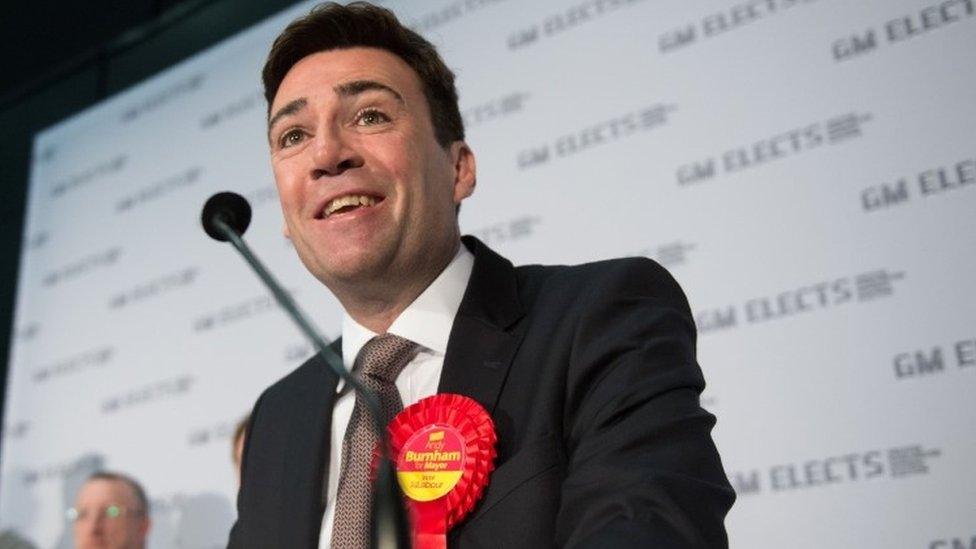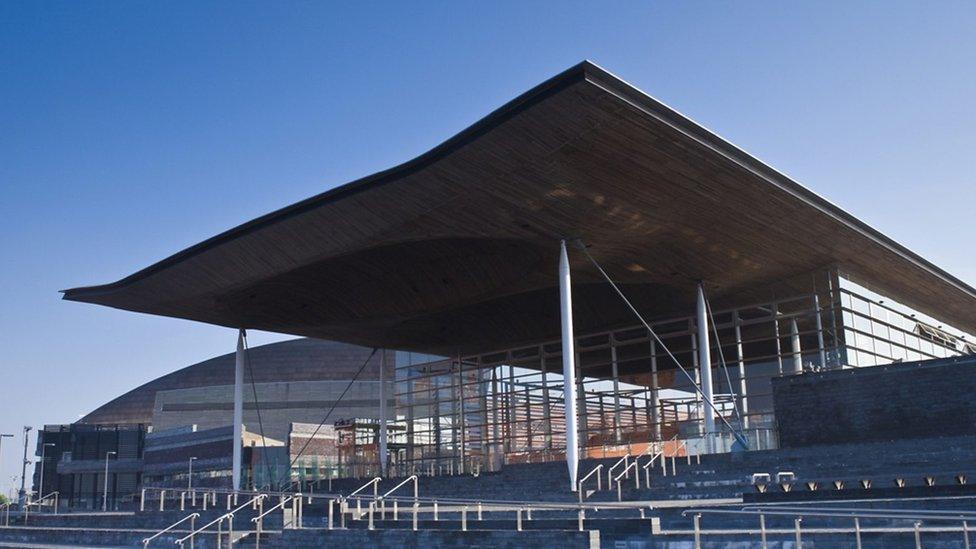Too much power centralised in Cardiff, says Alun Cairns
- Published
- comments
'Too much power focused in Cardiff'
More powers should be handed to Welsh regions - rather than ministers controlling everything from Cardiff, says the Welsh Secretary Alun Cairns.
On the 20th anniversary of the referendum that created the assembly, the UK cabinet minister said too much power had been "centralised".
Wales should respond to the challenge posed by new elected mayors in Bristol, Manchester and Merseyside, he said.
Meanwhile, First Minister Carwyn Jones said Wales was a "nation transformed".
In 1997 Wales voted by a narrow margin - just 6,721 votes out of 1.1 million cast - in favour of creating an assembly.
A former AM who switched to Westminster, Mr Cairns suggested the creation of English mayors meant there needed to be a new drive to move power out of Cardiff.
"I think it's fair to say that the devolution of powers from Whitehall to English cities has created a new dynamic, and Wales needs to respond to the challenge," he said.
"Centralising powers in Cardiff doesn't answer the needs of all parts of Wales. So there could well be the need for greater devolution to authorities, to individuals across the whole of Wales rather than keeping them in Cardiff Bay at all stages."

Greater Manchester mayor Andy Burnham, one of England's six new metro mayors
Bristol has had an elected mayor since 2012, with new regional mayors for both Merseyside and Greater Manchester created this year. The regional mayors have significant powers over issues such as housing, planning and transport.
Despite criticism of the Welsh Government's record on school standards and NHS waiting lists, Mr Cairns said people "rightly accept the assembly as part of the political landscape", even if most would "never love" the institution.
Prime Minister Theresa May said she was "pleased that my government has made an important contribution to Wales's devolution journey", referring to the latest Wales Act and agreement on funding.
However, Plaid Cymru MP Hywel Williams claimed Mr Cairns as her Welsh secretary had no right to "give lectures on devolution within Wales", accusing the UK government of "seeking to undermine the devolution settlement itself".
He said his party "believes in devolution by default - whether that is from Westminster to Wales, or Cardiff to councils and beyond".
"We believe by empowering the people of Wales, we can empower Wales," he said.
Carwyn Jones says devolution has become "entrenched" since the 1997 referendum
Meanwhile First Minister Carwyn Jones told an audience at an Institute of Welsh Affairs event in Cardiff on Monday that Wales was a "nation transformed" 20 years on from the referendum.
He said: "I see every day a generation of young people who are fearless, who are educated and grounded in Wales and firmly believe that the future belongs to them, and that the world is out there to conquer.
"The contrast with the past is huge, it has been hard won, and it must be built upon.
"That narrow win in 1997 has now blossomed into a broad consensus - our assembly is now the most trusted layer of government in the land."
'Mediocre'
However, research by Cardiff University suggests people thought the record of Welsh government under devolution to be "mediocre".
A survey indicated that 65% felt it had made no difference to their living standards, 60% no impact on education, and 50% no difference to the health service.
Prof Roger Scully of the university's Wales Governance Centre said people seemed "markedly unimpressed" by the impact of devolution, but added that many also thought the performance of the UK government to be "poor".
"The difference is that politicians in Cardiff Bay are, at least, more trusted to care about and be focused on the problems of Wales - even if people don't think that much of their efforts to solve those problems," he said.
The findings draw on previously unpublished data from the 2016 Welsh Election Study - which has a sample size more than 3,000 - and the most recent ITV/Cardiff University Welsh Political Barometer Poll, which was carried out 4-7 September, with sample size 1,011. Both surveys were conducted by YouGov.
The chair of the 1997 Yes campaign said devolution's record on the economy has been an "enormous disappointment".
Prof Kevin Morgan said devolution had made Wales a more democratic country, but had not met his "high hopes of what we used to call a devolution dividend" for the economy.
He added: "I'm not sure we're there yet in Wales in terms of our political maturity where we can genuinely say 'This has worked, this hasn't worked'. And if it hasn't worked, let's discuss the failure."
- Published18 September 2017

- Published18 September 2017

- Published11 September 2017

- Published11 September 2017

- Published17 July 2017

- Published5 March 2017

- Published27 January 2017
